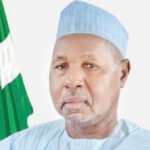The year 2021 has come and gone. Last year means different things to different people either for better or worse. It could be remembered as the post-COVID-19 year in which the country struggled to recover from the devastating effects of the pandemic. The government rolled out various intervention policies to uplift the people who were pushed to poverty by COVID-19.
Despite these policies, the majority of Nigerians are yet to recover from the shocks associated with the pandemic. The new year should serve as a period of assessment by our policymakers. There is a need for more intervention programs to improve the living standard of Nigerians. The government plans to remove fuel subsidy in the New Year is untimely. It will come at the wrong time when the country is grappling with hyperinflation and prices of goods and services have gone beyond the reach of the poor man. Though, the Minister of Finance, Zainab Ahmed, has assured Nigerians about transportation subsidy which will see 40 million people benefit from N5000, any price hike of petroleum will worsen the living condition of Nigerians. Given the negative effect of subsidy removal, our policymakers should shelve the plan. If the government insists or eventually removes fuel subsidies, it should ensure an effective price control system is put in place in the country.
- Gombe acting CJ swears-in 24 new magistrates
- Young Shall Grow set to compensate families of slain police officers
Last year, President Muhammadu Buhari had declined assent to the bill that will pave the way for direct primaries, citing insecurity, financial cost, and litigation as the reasons. Will Mr president make a u-turn and finally sign the bill this year?
The year 2021 was a worse year for the people of the North with bandits and South East with the activities of IPOB.
We hope that this mountainous insecurity may not find itself into the New Year.
Ibrahim Mustapha Pambegua writes from Kaduna State
 Join Daily Trust WhatsApp Community For Quick Access To News and Happenings Around You.
Join Daily Trust WhatsApp Community For Quick Access To News and Happenings Around You.


